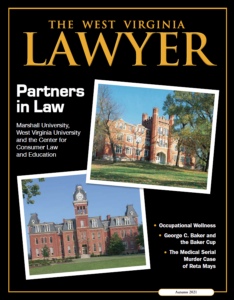ADVISORY OPINION 12-001
CRIMINAL COUNSEL; PLEA AGREEMENTS
To a criminal defendant nothing is more sacred than the protections afford ed him under
the Constitution of the United States and the Constitution of the State ofWest Virginia. The
framers ofthe Constitution of the United States and the Constitution ofthe State of West
Virginia deemed the protections afforded in these documents superior to that of an overreaching government. Specifically contained in these protections is the right of a criminal defendant to be represented by counsel. The United States Supreme Court stated the importance of this right in Powell v. Alabama, 287 U.S. 45, 68-69; 53 S.Ct. 55, 64; 77 L.Ed. 158 (1932). In Powell, the Court stated:
” The right to be heard would be, in many cases, of little avail if it did not comprehend the right to be heard by counsel. Even the intelligent and educated layman has small and sometimes no skill in the science oflaw. If charged with crime, he is incapable, generally, of detennining for himself whether the indictment is good or bad. He is unfamiliar with the rules of evidence. Left without the aid of counsel he may be put on trial without a proper
charge, and convicted upon incompetent evidence, or evidence it irrelevant to the issue or otherwise inadmissible. He lacks both the skill and knowledge adequately to prepare his defense, even though he have a perfect one. He requires the guiding hand of counsel at
every step in the proceedings against him. Without it, though he be not guilty, he faces the danger of conviction because he does not know how to establish his innocence. Emphasis added) ”
Further, the United States Supreme Court believed the right of representation was so
important that it declared that those who could not afford counsel in most criminal cases would be appointed counsel. See, inter alia, Gideon v. Wainwright, 372 U.S. 335; 83 S.Ct. 792; 9 L.Ed.2d 799 (1963). Thus, when one is charged with a criminal offense he must be assured that {R071 260 l .l} his constitutional rights are protected – this only can be done through the proper representation of counsel.
In addition to protections pointed out by the Powell Court, counsel must ensure that a
criminal defendant has not been subjected to unlawful searches and seizures; that he is not made to be a witness against himself; that he is not placed twice in jeopardy for the same offense; and that he has a fair, speedy and public trial.
Likewise, however, there arise instances when criminal defendants choose to voluntarily
give up these rights. Due to circumstances, these criminal defendants choose, through the plea bargaining process, to plead guilty to a charge or charges. When this occurs, it is imperative that a criminal defendant understand that by pleading guilty, he is giving up and waving those fundamental rights and protections afforded under the United States Constitution and the Constitution of the State of West Virginia. Thus, it is imperative that these rights and protections be thoroughly explained to him, by counsel, to ensure that he is making the proper legal decision.
Accordingly, it is the opinion of the Unlawful Practice of Law Committee of the West
Virginia State Bar that entry of a plea agreement and the waiver of these constitutional
protections is so important that it must be personally explained to a criminal defendant by his counsel and not undertaken by a paralegal, legal secretary, investigator or other non-attorney.
Further, the Unlawful Practice of Law Committee of the West Virginia State Bar deems these actions by non-lawyers to be the unauthorized practice of law.
Mark H. Hayes, Chair
West Virginia State Bar
Unlawful Practice of Law Committee

